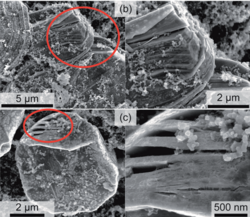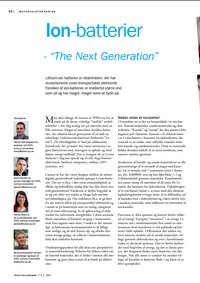
In our society, topics like global warming, energy production and storage are popular topics. A growing population and an estimated energy production of 14 TW by 2050 calls for new solutions. There are intense interest in renewable energy sources, for example wind, tidal, solar, geothermal, and biomass today but the energy production of some of these energy sources cannot be controlled due to for example weather dependency. Therefore, developing of good energy-storage systems are of highly importance in order to store the fossil-free energy produced. Today we only have the capacity to store around 1 % of the energy consumed worldwide. Around 98 % of that energy is stored through pumped-storage hydroelectricity.
On smaller scale, batteries are of fundamental need in a number of technologies we use in our daily life including phones, computers, remote controls, hearing aids, and cars. New batteries that can store more energy or can be charged faster are important in order to supply the need for technology that is a fundamental part of our daily life.

Sodium-ion batteries are a type of rechargeable metal-ion battery that uses sodium ions as charge carriers. They are targeted for energy storage in electric vehicles and grid energy storage systems due to the low cost, non-toxicity and large abundance of sodium.
NaCo0.7Mn0.3O2 have two common crystal structures.[1] In one of the phases the energy barrier for Na ion migration is relatively low, facilitating fast ionic diffusion which results in fast ionic diffusion and better cycle performance which are two essential parameters for rechargeable batteries.
[1] Shen, Y., J. Mater. Chem. A, 2016, 4, 12281

Do you want to read more about batteries in Danish? The paper Ion-batterier - "The next generation" was published in Aktuel Naturvidenskab in 2014. Read it here.